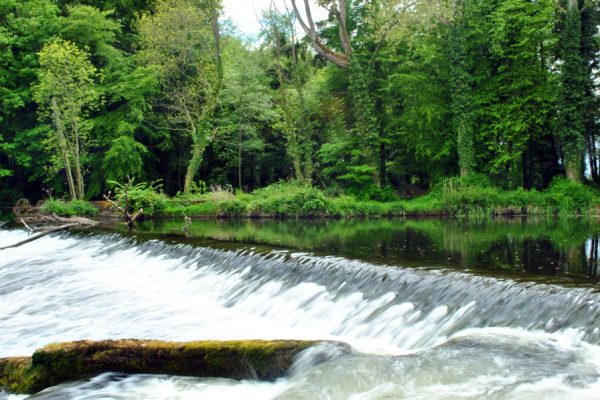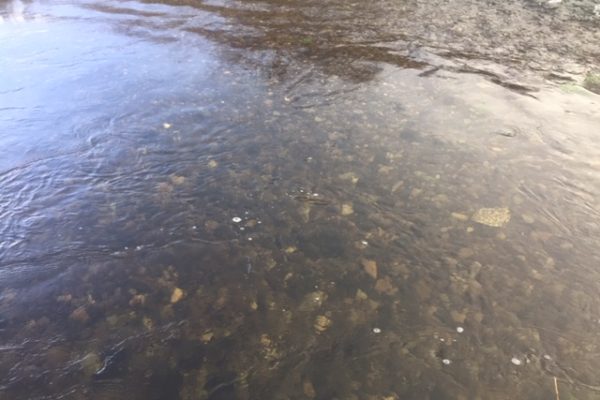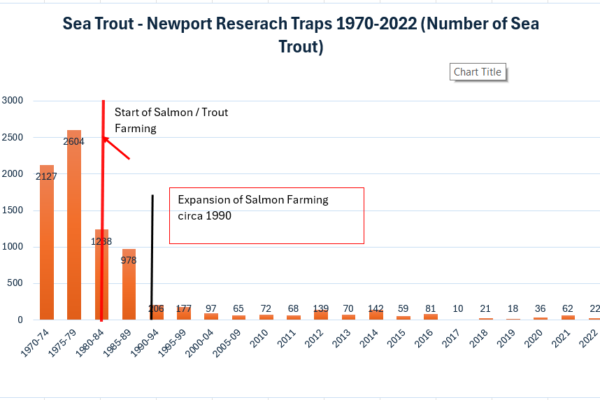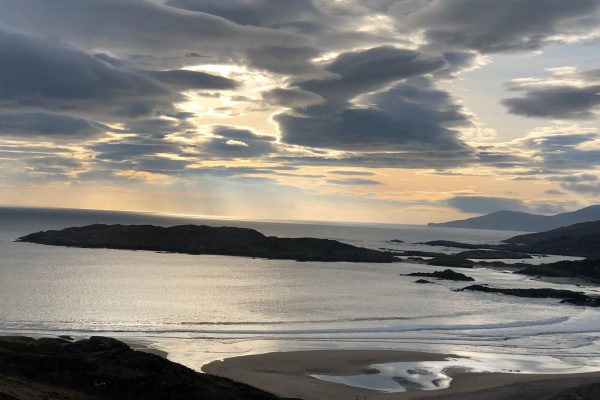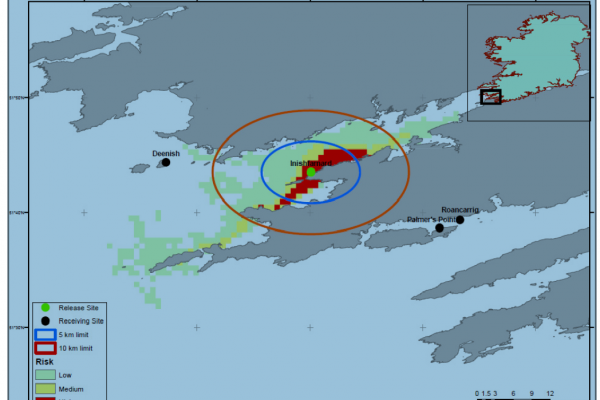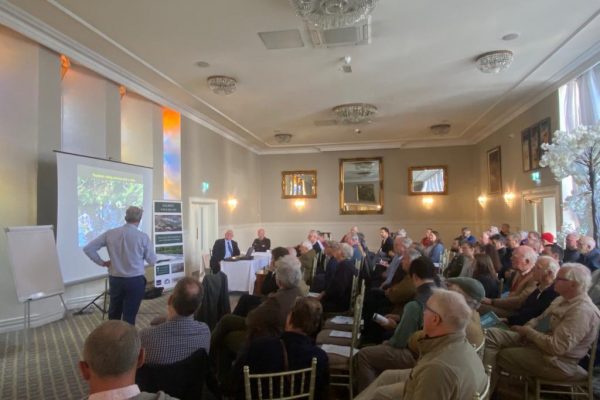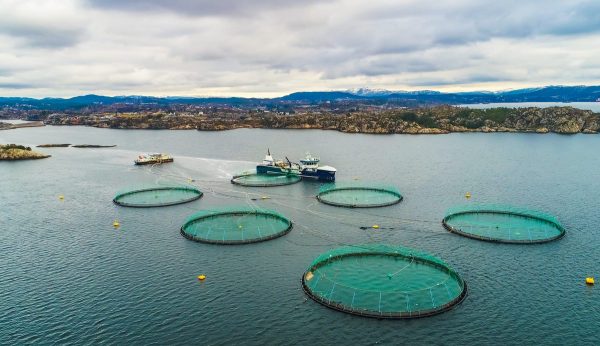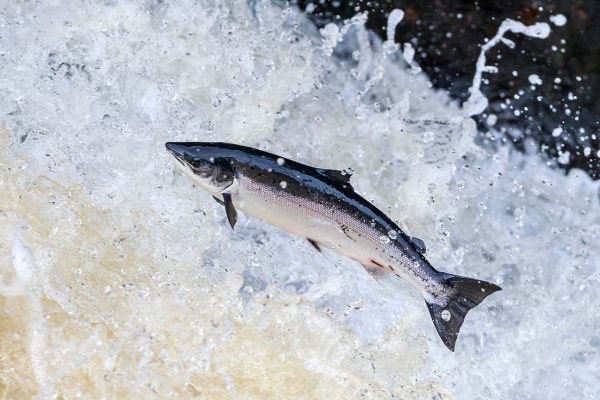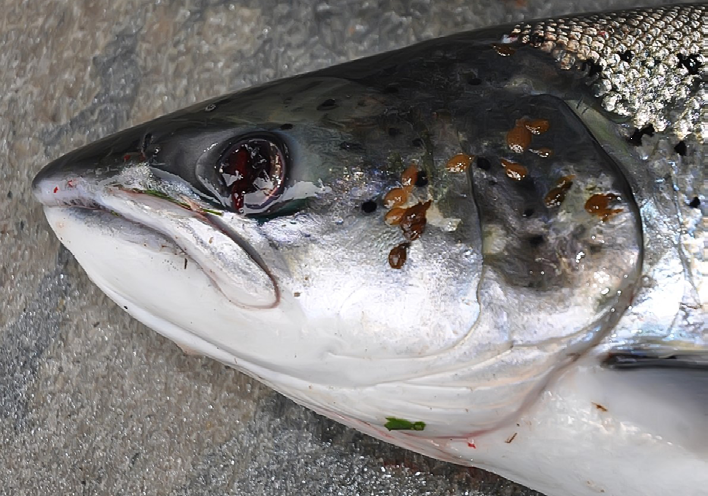-
Barriers Report – Joint Oireactas Committee
The Committee agreed to examine the issue of barriers to fish migration in Irish rivers as part of its 2024 work programme. The Committee held a number of public engagements and received written submissions on this issue and acknowledged the difficult balance between flood risk management and conservation and enhancement of fish populations.This report contains ten recommendations which the Committee feels will serve to meaningfully address factors inhibiting the effective removal and mitigation of barriers in the Irish river network. Barriers Report 2024
Continue reading -
Ballisodare Atlantic Salmon Mortalities
With a large number of mortalities and an ongoing investigation by IFI and the Marine Institute it would suffice to say that to lose up to 900 adult salmon is a tragic outcome for this river. We await the outcome of the investigation but we are aware that it appears that the losses are primarily adult salmon. This may be related to oxygen demand as the river appears to be low over a prolonged period. Larger fish require higher levels of oxygen and large quantities in a relatively small area of a river can trigger stress and lead to secondary infections. Higher water may alleviate this but weakened fish may not survive even if distributed further upstream. There appears to be a rise in water over the past number of days and we will see if this alleviates the situation. While there are reports of a large run through the counter it is apparent that the loss of adult salmon at this scale can have consequences for spawning numbers and that other adult salmon may have a compromised survival chance through stress related secondary infections. We would certainly support an engineering solution to natural barriers if these are deemed to be partly responsible for the mortalities.
Continue reading -
Atlantic Salmon News
High Court Ruling - A good day for Atlantic salmon The long running high court case against the Aquaculture Licence Appeals Board and the Department of Agriculture, Food and the Marine received judgement on Friday 12th July, and we were successful in having the decision to issue a salmon farm licence at Shot Head in Bantry Bay quashed and sent back to ALAB and DAFM for re-decision effectively forcing MOWI to start the entire process of applying for a licence again which will be subject to our full consideration and renewed objection on numerous environmental grounds. Briefly put, the Aquaculture Licence will be quashed for inadequate: i. AA Screening of the risk of effects of seal scarers on seals of the SAC. ii. EIA as to the risks of escape of salmon from the fish farm. This finding relates to necessity of re-consideration of bespeaking the DAFM reports on the 2014 farmed salmon escape in Bantry Bay, and comprehensiveness of the EIA as it related to the specification and structural integrity of the cage installation. iii. reasons for the conclusion that the proposed fish farm will not lead to a breach of WFD limits as to Dissolved Inorganic Nitrogen – specifically, reasons for reliance on RPS’s “typical” data in reaching that conclusion. In addition, I will declare that ALAB delayed unreasonably as to AA Screening from the making of the Appeals in October 2015 to embarking on AA Screening after the Oral Hearing Report of November 2017. I will grant no further relief on that account. The Foreshore Licence will be quashed as • contingent on the quashed Aquaculture Licence, Ministerial regard to which was a statutory requirement of granting the Foreshore Licence. • the Minister erred, in breach of s.82 of the 1997 Act, in granting the Foreshore Licence in 2022, in having regard to his Aquaculture Licence decision of 2015 rather than to ALAB’s impugned Aquaculture Licence determination of 29th June 2021. The full decision is at following link. Court Judgement
Continue reading -
Marine Institute – Sea Trout Collapse
This is a graph of sea trout collapse in the Burishoole system in the west of Ireland. This is a stark reminder that sea trout and salmon farming are mutually exclusive. Salmon farms basically make sea trout survival impossible. This station is operated by the Marine Institute which is in denial of the destruction of wild salmonids by salmon farms. The recent post from Alexandra Morton showing the effect bares a striking resemblance to this. The data source is the annual report of the Newport Research which is publicly available at the following link. Marine Institute Report There is a data set of both salmon and sea trout spanning back to 1970.
Continue reading -
New Study on plankton in North Atlantic – Atlantic Salmon Survival
This new study reinforces the belief that Atlantic salmon survival has been compromised substantially by a changing ecosystem in the North Atlantic. We must redouble our efforts to substantially increase wild healthy juveniles going to sea and give them the best chance of survival by protecting water quality and habitat integrity. Mitigation for ecosystem compromise in the ocean is essentially difficult short term but larger healthy wild smolts going to sea will certainly improve survival. New Missing Salmon Alliance paper brings us closer to understanding the decline in marine survival of wild Atlantic salmon
Continue reading -
Please Help Atlantic Salmon in 2024
This year we have seen a continuation of poor returns to Irish rivers. There may be many factors involved in this situation but it is evident that we collectively need to secure as many large spawning fish as possible to bolster compromised spawning escapement. To help in this matter Salmon Watch Ireland is asking all angling stakeholders to minimise their impact on remaining stocks. The angling stakeholders have a choice and can limit their catch. The over generous national limit of an individual harvesting ten salmon should be substantially reduced this year by the voluntary actions of the angling community. We would ask that angling is carried out with a view to releasing fish by using appropriate methods. We also request that salmon of over 65cm be released and no fish should be harvested in September. The choice to do this is voluntary and we will be asking that these over generous rules involving individual harvest by anglers to be substantially reduced going forward. While we have requested that commercial fisheries should be closed going forward and a appropriate scheme to alleviate hardship on fishermen be introduced, we are going to canvass the commercial sector through Inland Fisheries Ireland this year to reduce their effort and limit their uptake of quota. We will request that if fish counter results show a substantial decline on normal (poor) returns by mid July, Inland Fisheries Ireland and Department of Environment , Climate and Communications should consider that exploitation be further controlled by regulation. In the interim it would greatly help the situation if all stakeholders cooperated in this voluntary effort to protect what remains. We in Salmon Watch Ireland are conscious that salmon are under enormous pressure in all countries and we would hope that in future there may be an improvement in stocks which would allow a sustainable harvest by stakeholders but this present situation is alarming given the widespread and accelerating decline. Please limit your catch
Continue reading -
Kenmare Bay – Disregard for Special Area of Conservation
Kenmare Bay is located in the South West of Ireland and is home to two currently operating salmon farms (Deenish and Inishfarnard) owned and operated by MOWI. There are two other farms within the bay which are not currently operating with a further application pending for another site near Inishfarnard. The farm at Deenish was ordered to close in April 2019 but has continued to operate pending the outcome of an appeal which has yet to be determined. This situation is appalling considering that five years have elapsed without any sign of determination. The farm has been allowed to continue to the detriment of the once famous sea trout fishery in Waterville. This fishery had the potential to generate up to three million euro for the local economy but is essentially now derelict with little if any angling tourism in the area. Make no mistake this fishery can be returned to a vibrant fishery with economic prosperity returning if salmon farming is removed from Kenmare Bay. No sea trout fishery has ever survived along side open pen salmon farming and Waterville is no exception. This situation is completely mirrored in the west of Ireland, Scotland and Norway. It is worth noting that when the farms in Kenmare Bay were closed in the period from 2004 to 2009 there was a substantial increase in sea trout numbers and a rebalancing of the population through all age groups. Waterville is home to genetically distinct sea trout and are a national asset which has been effectively destroyed by salmon farming. In 2023 MOWI applied for a renewal of their expired licences for Deenish and Inishfarnard and this is under examination by the Department of Agriculture, Food and Marine and is awaited with interest by all. There were a significant number of objections to these applications so we await determination but we expect this may take some time if previous experience is anything to go on. We would like to draw your attention to our submissions regarding the renewal applications and feel free to extract information to bolster your understanding of the issues surrounding salmon farming in Ireland. Inishfarnard Submission Deenish Submission
Continue reading -
Opening Remarks AGM – Salmon Watch Ireland
Welcome to Salmon Watch Ireland’s AGM for 2023 being conducted by Zoom. This meeting is primarily held to conform with our obligations under the Companies Act. 2023 was again a year primarily dominated by our Judicial Review on the decision to award an aquaculture licence to MOWI in Bantry Bay. Having taken the decision to enter into this legal process it was necessary to devote a considerable amount of time to research our main avenues of approach to the legal process. The Judicial review took place in April/May and was a very complex case involving three separate parties taking the review namely IFI, SWIRL and Sweetman and others including FISSTA. The judgement is still outstanding, and we are certainly concerned at the time period this judgement is taking to finalise. We certainly agree that the hearing of the case was exceedingly fair and indeed comprehensive with all parties given a fair hearing. The judgement is listed for mention again in October, but we may see a judgement at a date earlier. I would like to thank all our directors and indeed our members and supporters who helped to prepare and support us both financially and with advice which enabled us to pursue this case. The 2023 salmon run in Ireland was extremely poor with regard to both grilse, and spring salmon. Certainly, it is probable that it was the lowest return in the time series. It will be interesting to see how this will be reflected in catch statistics and indeed how the fish counter report might illuminate and reinforce our view of stocks. It is also interesting that spring stocks in 2024 suggest extremely poor returns which feeds into the narrative that linkage exists between grilse and MSW stocks in regard to survival at sea in first year. The return of salmon to Ireland is in a very precarious position with stocks now at 10% of historic highs. This is also reflected in most countries supporting Atlantic salmon stocks with UK and Norway showing a similar decline. There is also evidence that the decline in perceived strongholds like Iceland and the Russian Federation is now accelerating and showing a similar worrying trend. The scale and basin wide declines are consistent with oceanic influences which may be related to warming SST which can and does have cascading influence on currents and productivity at sea. It is also worth noting that Baltic salmon saw a dramatic decline in 2023 which would certainly be remote from Atlantic influence, so a climate explanation is suggested. There is also a suggestion that unregulated high seas fisheries directed at Atlantic salmon may be occurring but evidence of this is currently not reliable, but areas of concern are North of Faroes and South of Greenland. These areas are consistent with fisheries for salmon which were carried out by the Faroes and Greenland during 1970s and 1980s. However, the evidence of these fish coming to market is not available. We do know that there are complex reasons which dictate strength of salmon populations but with a background of practical elimination of legal harvest it is not beyond the possibility that other illegal directed fisheries have grown in international waters. This must be investigated by NASCO and must include a directed and well-resourced program going forward. The newest threat to Atlantic salmon is certainly the vast and continuing expansion and strengthening of the pink pacific salmon presence in the North Atlantic. While these fish would appear to present difficulties in freshwater, we would suggest that vast populations of these fish are now at sea in Northeast Atlantic and certainly will further compete with all species in traditional feeding areas for Atlantic salmon. There is anecdotal evidence that pink salmon have reduced other pacific salmon populations through competition in North Pacific. Coming closer to Ireland it is quite evident that we have enormous problems in regard to water quality and other issues related to loss of biodiversity. It is alarming that the regular updates on water quality by the EPA usher in a consistent and robust denial of the role that agriculture plays. The agriculture lobby is strong politically but the derogation situation in regard to organic nitrogen limits will have to be discontinued and SWIRL will be actively promoting its removal. The spectre of lack of investment by the state in wastewater infrastructure is now coming to a head with a renewed investment in housing with consequent overload of already inadequate treatment plants.Again, SWIRL will be seeking to empower local communities to make observations on planning to seek proper and reliable infrastructure. We have also continued to engage in regard to open cage salmon aquaculture with a large number of submissions in regard to renewals of expired licences. We also are still awaiting a determination of our EU complaint against Ireland in relation to legislation surrounding salmon aquaculture. The issue of mortalities on Irish salmon farms has been consistently mentioned and is outside international norms which is certainly reflective of an industry which should never be operating in Irish waters. Mortalities and disease are certainly indicative of a dangerous near coastal environment which has the probable outcome of many negative outcomes for wild salmonids. SWIRL again has been at the forefront in calling for exploitation being reduced substantially. The commercial harvest of salmon is certainly not consistent with low stock levels and needs to be dis-continued while more protection of salmon from over harvest by other stakeholders is a necessity. Directed conservation is required with larger fish requiring more protection. We still view the allocation of ten tags as being over generous in times where salmon stocks are at such low levels. We have consistently not called for mandatory catch and release in rivers with a surplus, but we certainly cannot be happy in a situation whereby certain stakeholders may be compromising the calculations through inaccurate returns. Accordingly, we have made suggestions on how the process can be improved to increase accuracy. It would not be incorrect to suggest that very few salmon catchments are managed in an effective way. We need a situation where properly resourced management structures on rivers lead to a better outcome for the resource.To this end SWIRL has taken a strategic evaluation of our focus going forward and have decided to endeavour to empower local communities to act in the interests of salmon conservation through practical actions facilitated by resources provided by us. We again facilitated an annual conference and awarded the Salmon Hero Award for the excellent and ongoing work on the Suir Tributaries. The award is in recognition of local community involvement in preserving local salmonid populations through practical actions. These annual conferences serve as a very important information resource to which all stakeholders can engage in and will certainly be continued and expanded. ENDS.
Continue reading -
A rather unique and interesting point of view – Regenerating our salmon and rivers by Nicholas Grubb.
This article encompasses many aspects which Salmon Watch Ireland agree with especially the management of riparian zones. It is an interesting submission which should help to garner an understanding of the many issues prevalent in Ireland regarding the ecosystem management of our river systems. It is interesting to note that management is almost non existent on all our river systems. While ownership of fishery rights are by and large fragmented there is an onus on all interested parties to work together to put in place a professional fishery and ecosystem management system especially on our rivers which produce the majority of smolts. We would also suggest that barriers should be improved to allow easier migration but also agree that large deep water sections may be appropriate in certain rivers. A changing climate scenario is fast approaching and our rivers need sympathetic and ecosystem friendly approaches to improve or indeed protect salmonid productivity. This is a very thought provoking article and the author should be congratulated for his long time unique interest and activism in conservation matters. Dromana House - Lower Blackwater, County Waterford Read More
Continue reading -
Ballinakill Salmon Farm- Submission
Application for licence for an open cage salmon farm at Ballinakill Bay, Co Galway Dear Minister, The documentation submitted by Comhlucht Iascaireachta Fanad Teoranta, (CIFT), trading as MOWI Ireland, seeking a licence for an open cage salmon farm to be sited in Ballinakill Bay, County Galway, falls far short of what is required pursuant to Article 6(3) of the Habitats Directive. Nor can there be reliance on Article 6 (4) thereof, as there are no stated ‘imperative reasons of overriding public interest’, (IROPI), which could justify locating a salmon farm at this sensitive location. The proposed site is within close proximity to the Dawros river mouth. This river forms part of the ‘Twelve Pins Garraun Complex,’ Special Area of Conservation, (Site Code 002031). In this river Wild Atlantic Salmon are a ‘Qualifying Interest.’ Juvenile salmonids, which are already susceptible to mortality from parasitic sea lice from the existing salmon farm in Ballinakill Bay, would be also subject to the cumulative impact of the additional sea lice loading from the proposed MOWI/Marine Harvest salmon farm. No appropriate assessment has ever been conducted in relation to the adverse impact of the existing salmon farm, which is there already. It is suggested that Appropriate Assessment must be conducted on the cumulative effect of both salmon farms before any decision may be reached. Read More - Full Submission
Continue reading
- 1
- 2

